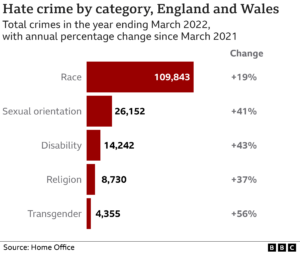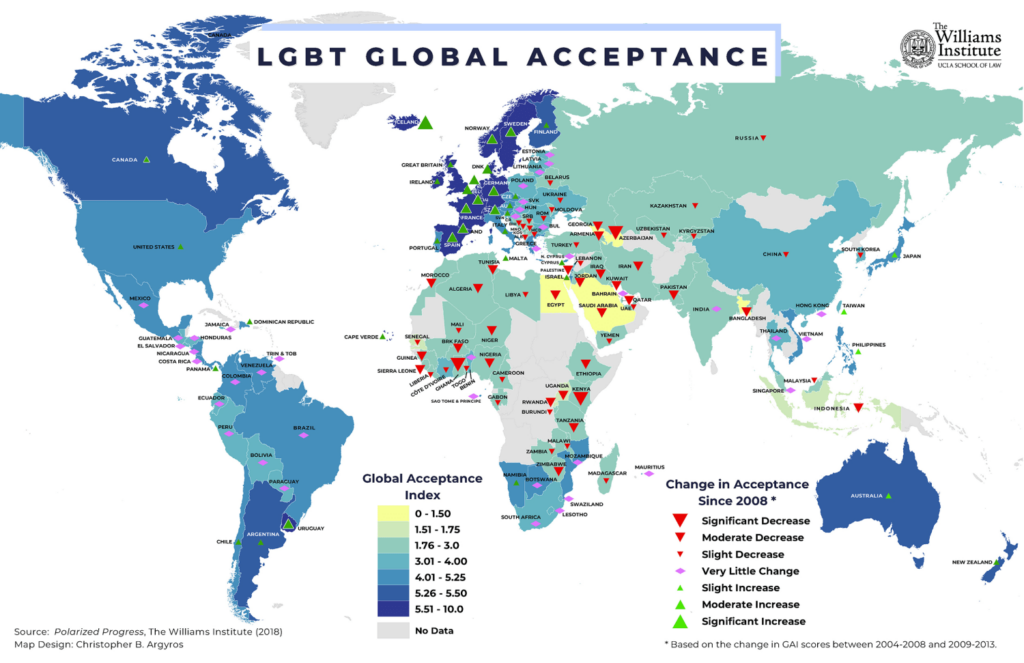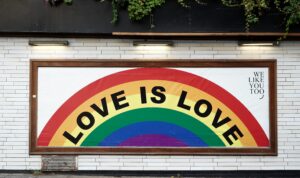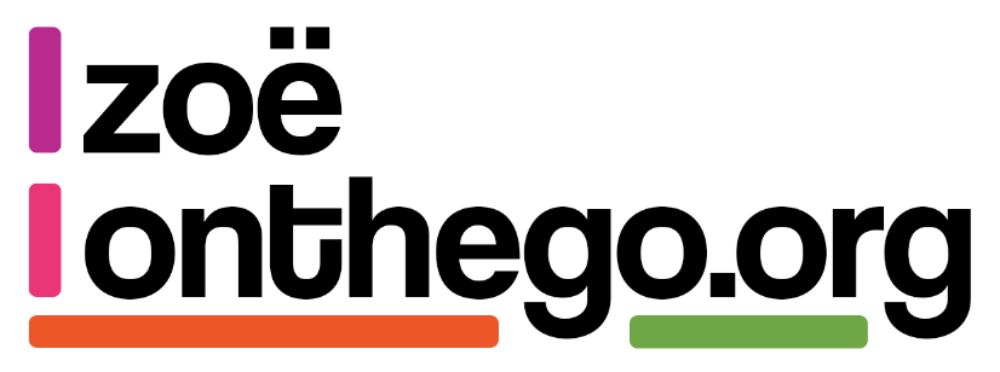Reflecting on where we’ve come from, and where we are going.
As we begin LGBTQ+ History month this year; many people within the LGBTQ+ community feel it’s from an increasingly dark place. Within the UK hate crimes have been increasing year on year; with an increase of 41% for homophobic attacks, and a staggering 56% increase in transphobic attacks; but prosecution rates have remained shockingly low.

This increase in Anti-LGBTQ+ sentiment is put down by some as being a simple correlation to the increase in the number of open LGBTQ+ people; they argue that it’s not that there is more hate out there, just that there are more people are open about their sexuality or gender identity; and that LGBTQ+ issues are more prevalent in the media; which has caused those people who are homophobic or transphobic to be more vocal.
So is this true?
The latest UK census data shows that there are now more people than ever who identify as LGBTQ+; with a 2.7% increase in LGB people with 3.1% now identifying as Queer of some flavour; and 0.5% of the UK population identifying as Trans. In the US the proportion of people who identify as LGBTQ+ has increased from 3.8% in 2011 to 7.1% in 2022. Worldwide, the picture seems similar, with 3% of people polled in a 2021 global survey now identifying as LGBTQ+, although historical numbers are hard to find.
Acceptance of same-sex relationships
Acceptance of same sex relationships is also at an all time high; with research conducted in 2019 suggesting 86% of people in the Uk are in favour or accepting of same sex relationships; and even in countries like Kenya with a low acceptance rate of 14%, this is still a significant improvement.

2022 has been a historic year, with some major victories for LGBTQ+ people around the globe. We now have thirty-three countries, including that have legalised same-sex marriage (most recently Cuba and Slovenia voted to legalise same sex marriage in 2022), and some others recognise same-sex civil unions.
In other positive news in 2022, Tokyo passed legislation granting same-sex couples some privileges enjoyed by married couples; India’s Supreme Court ruled to expand the definition of family to include “atypical” families, such as same-sex couples; Isreal passed a law to allow LGBTQ+ people the use of surrogates to have children; and the countries of Antigua and Barbuda, Bermuda, and St. Kitts and Nevis all struck down laws criminalising gay sex.

Sadly, this picture is spotty, and while acceptance for same sex relationships seems to be moving in a positive direction in some places, in the majority it looks to be moving backwards. In 2022 alone, Russia made it illegal to treat same-sex relationships as “normal”, South Korea, ruled against recognising same-sex partnerships; In Afghanistan a 2022 Human Rights Watch report, the Taliban’s takeover had “dramatically worsened” LGBTQ+ people’s lives; in Lebanon peaceful LGBTQ+ gatherings were banned outright in 2022; Ghana is in the process of drafting legislation that would make identifying as gay or even an LGBTQ+ ally a felony; and there are still 11 countries where being found to be LGBTQ+ carries the potential for the death penalty.
Trans rights.
Interestingly, while the acceptance of same sex relationships is high in the US overall, anti-trans rhetoric is on the rise, and as we enter 2023 a historic number of states have (or in the process of) introduced anti-trans laws. Below we can see all the states in red and orange, which have actively introduced bills that are detrimental to trans people vs the states in Green that have actively introduced bills to protect trans people rights.

In the UK, the Scottish Government recently passed a ‘gender recognition bill’ that would allow trans people to legally change their gender through system of self-identification; however the UK Government has blocked the bill to prevent it becoming law.
WHAT ROLE has the media played in changing views?

A recent study found that not only has there been a large increase in social media and news reports on Transgender rights in particular; but that the increase has been fuelled by coverage from far right news sites. Brennan Suen of Media Matters stated that “Facebook users are getting a totally biased and factually inaccurate understanding of the multitude of issues that impact trans people”.
This is even more worrying when we consider how people interact with and consume their news has changed; 36% of people in the UK state they now get their News from Facebook; this is similar in the US where 31% say they use Facebook as their main news source.
But Facebook isn’t the only issue; there have been increasing reports of anti-LGBTQ+ posts on platforms like Twitter as well, and again, the data suggests that again this is coming from an increasingly vocal right wing base.

The impact this can have on the perceptions of LGBTQ+ people was demonstrated by conversation on social media; for example when the latest UK census was posted huge numbers of people massively over estimating the number of LGBTQ+ people in the UK; fake and bias articles about trans crime rates that are still widely shared even when they have been debunked, and the growing concern in right wing circles about the “woke” or “gay agenda”.
So what can we be doing about this?
There are a number of ways that both individuals and organisations can have a positive impact on LGBTQ+ acceptance.
- First and foremost, talking about the issues. Don’t stay quite or be reactive, but be proactive advocates and ally’s for acceptance and inclusion.
- Fact check your news sources before sharing articles online; ensure what your sharing is accurate and label any bias so that it’s clear to see.
- Normalise inclusion; as businesses whenever we launch new healthcare or staff well fare policies etc, we should be checking them to ensure they are inclusive. (For example at Deloitte our staff healthcare policy within the UK now covers treatment for Gender Dysphoria, which is fantastic). And as individuals we should be proactively supporting businesses* and companies who can prove they are not simply paying lip service to LGBTQ+ inclusion.
- As businesses we need to be investing in our internal communities and publicly celebrating their achievements; and as individuals we need to join and support those communities, even if we’re not members ourselves; helping to promote their voices and experiences.
Things may look bleak, but we are making progress; and if we work together we can keep making this word an inclusive one; where everyone can be accepted no matter who they love, or what their gender identify is!

*If you want to find LGBTQ+ owned brands to support; this list for the US can help, and this list shows LGBTQ+ owned brands in the UK.
If you’re looking for a new role, this job board specifically advertises roles within LGBTQ+ inclusive companies.

Leave a Reply